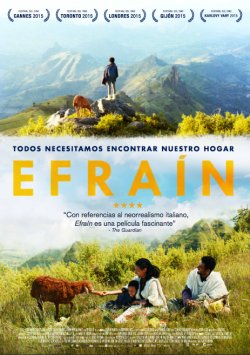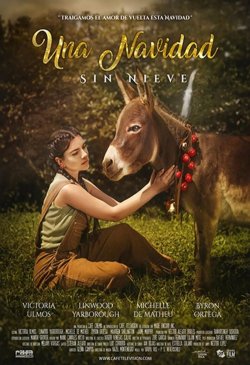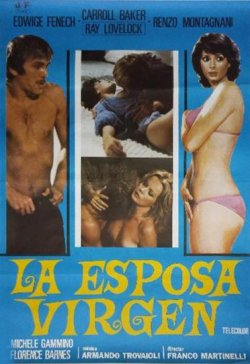 INFORMACIÓN EXCLUSIVA
INFORMACIÓN EXCLUSIVA
There are parallels between Ephraim, the main character in Lamb, and myself. Strong women raised me in Ethiopia. I preferred to cook in the kitchen with my grandmother rather than play sports with the other boys in my neighborhood. At the age of ten, the ongoing conflicts and chaos in my country caused me to lose my home and family.
Lamb is analogous to my life’s journey in that it is deeply personal and inescapably political. It is a semi-autobiographical, coming-of-age drama that incorporates the heart, heartache, and humor of everyday life in my homeland.
I grew up in the slums of Addis Ababa during one of the darkest periods of Ethiopia’s 3,000-year history. Emperor Haile Selassie had just been deposed in a military coup and the country was consequently thrown into cycles of war and famine. In its attempt for authority and control, the military junta known as the “Derg” (the Committee) implemented a tyrannical rule. Tens of thousands of dissents and political opponents were executed and imprisoned without trial. I remember the soldiers who came to imprison my father; the cries over a cousin who was shot dead because he was educated, a doctor; and my mother calling me into her bedroom one day to tell me she was leaving me in the “cursed slum” to find a new life for herself on the better side of Addis Ababa.
Despite all the chaos, I had a happy childhood in Ethiopia. The traditional African proverb “it takes a village to raise a child” rings true about my upbringing. The adults in my neighborhood collectively looked after all the children, keeping us distracted from the horrors of the Derg with school, church, soccer, and movies (mainly from Russia, India, and East Germany). My primary caretaker was my grandmother, who was revered for her storytelling skills as much as she was for her coffee ceremonies. (She was from Kaffa, after all, the birthplace of the coffee bean.) I remember my aunt’s spiced bread; my cross-dressing cousin’s comedy act; the forested, majestic mountains surrounding the city; and the bonfires, flowers, and singing during the holidays.
There are fairytale-like aspects to Lamb: A pubescent child, searching for a way home, with his best friend lamb, against his evil uncle, amidst strange mountains and a ‘forbidden forest’. The story, however, is more realist than a fable. It takes place under the harsh conditions of a hard-labor farm life in Ethiopia. The women may appear as a kind of fairy to offer redemption for Ephraim. But they are ultimately unsentimental maternal figures. While Lamb is shared through a child’s eyes, the subject matter as well as tone remains complex and nuanced. The nine-year-old boy loses his mother and becomes separated from his father as well as homeland. The story does not shy away with the seriousness of his trauma. But neither does it dwell on the tragedy. In a non-romanticized portrait, scenes that are tender, colorful, humorous, and hopeful are all woven throughout Ephraim’s journey.
The themes of Lamb mainly deal with being displaced and dispossessed of home. Ephraim longs for his old family and attempts to return to where he comes from. Family and food as the embodiment of home also runs throughout the story. Ethiopia is engraved in the world’s collective memory because of the famine in the 1980s. The question of food and its paradoxes, therefore, is an important element in the narrative. Ephraim lost his mother to famine; he is always in search of or stealing food to feed his beloved lamb; and he applies his cooking skill, (going against the customary gender role), to save his lamb and go back to his homeland. Hence, food also symbolizes survival and love. While his relatives view the lamb as the only source of “meat for the holiday”, Ephraim sees the lamb as his only friend.
Lamb attempts to explore how an individual, in this case a child, deals with loss. Tragedies of great magnitude are not uncommon amongst the most marginalized persons in, especially, the poorer parts of the world. But this coming-ofage story is universal in that it is about coming to terms with the tragic forces of life in order to survive and even grow.
I want to cinematically capture these contrasts and contradictions of my beloved home country to share with the world. Lamb is a means for me to reflect upon the complex and nuanced reality of the Ethiopia I remember. That in a time of war, famine, and oppression, people lived and loved that much more. We all can connect to the rich emotional life that is a part of our humanity. Beyond the barriers of geography, history, and culture is the dialogue of emotions that we have the ability to empathize and engage with. Thus Lamb is not only my story, but can be that of anyone.

![]() CRITICA
CRITICA![]() CÓMO SE HIZO
CÓMO SE HIZO![]() VIDEO ENTREVISTAS
VIDEO ENTREVISTAS![]() PREMIERE
PREMIERE











